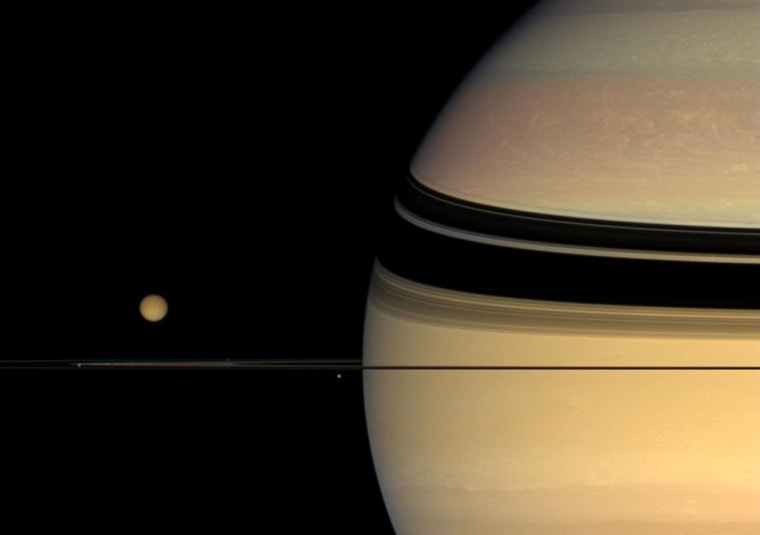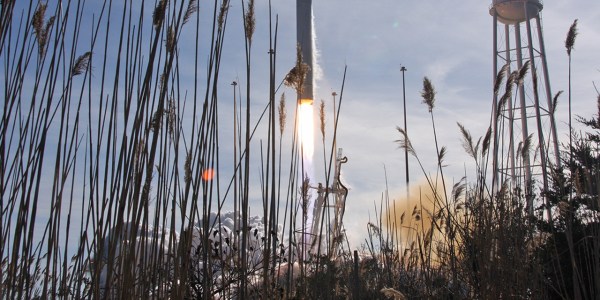Observations from the international Cassini spacecraft suggest Saturn's largest moon may have active or recently active ice volcanoes.
Radar images point to flows on the surface of Titan that could result from volcanoes spewing chilled liquid from the interior, mission scientists reported Monday.
Previous Titan flybys suggested ice volcanoes existed, and scientists believe they would erupt with ammonia, methane and water instead of lava.
The latest data "not only indicate that cryovolcanism has been going on on Titan in the recent geologic past, but might even be going on on Titan today," said Cassini scientist Jonathan Lunine of the University of Arizona in Tucson.
Titan is one of the few bodies in the solar system with a significant atmosphere. Scientists believe methane gas breaks up in the atmosphere and forms clouds that rain methane.
Slideshow 12 photos
Month in Space: January 2014
The source of methane remains a mystery. Scientists favoring the volcanic theory say methane eruptions from Titan's interior could explain the moon's smoggy atmosphere.
Data from the spectrometer instrument on Cassini found bright spots on two regions on Titan. In one of the regions, scientists found evidence of ammonia frost that they interpreted as coming from the interior.
The results were presented at an American Geophysical Union meeting in San Francisco.
Not everyone is convinced by the evidence.
Planetary scientist Jeff Moore of NASA's Ames Research Center, who has no role in the project, said the results were intriguing, but inconclusive.
"Something is going on. Exactly what it is isn't clear," Moore said.
Cassini is a project of NASA, the European Space Agency and the Italian Space Agency. The spacecraft has been orbiting Saturn and studying its rings and moons since 2004.

